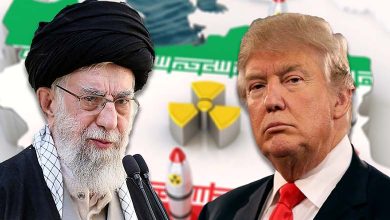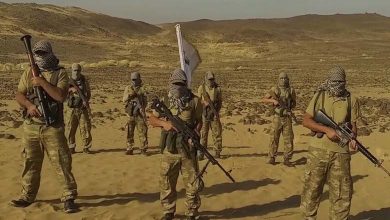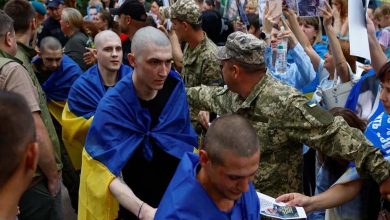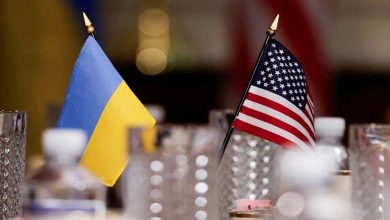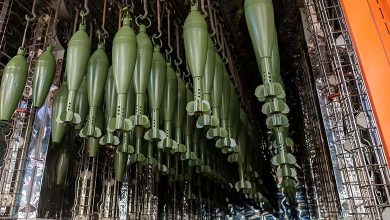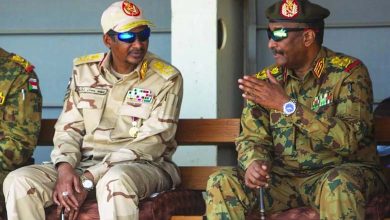The “Beer Hall Putsch”: The Bullet That Brought Luck to Hitler
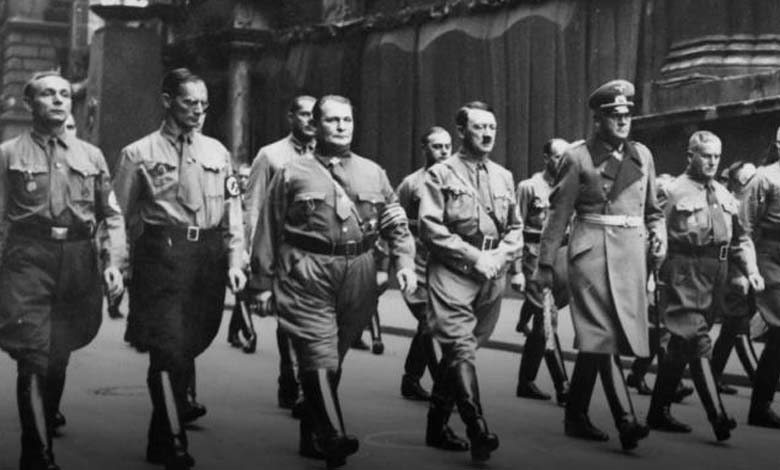
One hundred and nine years ago, Adolf Hitler entered the Beer Hall in Munich and fired his pistol at the ceiling, beginning his journey with “the greatest stroke of luck.”
The attempt, which occurred on November 8, 1923, became known as the “Beer Hall Putsch” and almost immediately failed. Hitler was arrested, imprisoned, many of his followers were killed, and the Nazi Party was banned.
However, instead of setting him back, Hitler‘s failed coup helped fuel his ambitions.
As Hitler himself later said, “Perhaps the failure of the putsch was the greatest stroke of luck in my life.”
According to Benjamin Carter Hett, a history professor at Hunter College and author of “Death of Democracy: Hitler‘s Rise to Power,” Hitler was influenced by Benito Mussolini’s march on Rome in 1922, where he planned to seize power in Munich, the capital of Bavaria, which was then “a real hotbed of marginal political activity.”
Beer Hall Putsch
On November 8 of that year, Hitler put his plan into action during a mass meeting attended by about 3,000 people in the Beer Hall in Munich.
While Gustav von Kahr, the Bavarian commissioner, addressed the crowd, Hitler burst in, leaped onto a chair, and fired his pistol at the ceiling to silence the crowd.
Sweating profusely, Hitler declared that “the national revolution has begun.” At the same time, his men surrounded the Beer Hall and blocked its main entrance with a machine gun, taking several Jewish hostages, looting two printing houses, and destroying an opposition newspaper.
After being taken to a back room in the Beer Hall and threatened, Kahr and two military leaders agreed to join the coup attempt.
However, although they also opposed the Weimar Republic, they turned against Hitler as soon as they were released, informing the army and state police of his plot.
Additionally, Hitler‘s men failed to secure some key buildings, including the army barracks and telephone exchange.
After seeing their plan unravel, Hitler and his co-conspirators staged a wide-ranging march through Munich on November 9. But they were intercepted by a unit of Bavarian police, leading to a shootout that resulted in the deaths of 15 of Hitler‘s men. Hitler himself suffered a dislocated shoulder during the clash, and a Nazi by his side was shot fatally in the chest.
Hitler‘s Arrest
After the failed coup, Hitler went into hiding for two days until the police tracked him down and took him to Landsberg Prison west of Munich.
Initially, Hitler was despondent and stopped eating. The German authorities had banned the Nazi Party, closed its newspaper, and arrested many of its leaders.
The New York Times reported that “the Munich putsch certainly finished Hitler and his nationalist socialist associates.”
But as Hitler realized, prison had its benefits. For one thing, it forced him to change his tactics.
The failed coup and subsequent trial, in which Hitler and nine other defendants were charged with high treason, also received extensive media coverage, elevating him to a national figure.
With wide-ranging movement freedoms from judges, one of whom was heard describing him as “the colossal man,” Hitler delivered lengthy speeches in the courtroom portraying himself as the savior and nationalist who only wanted what was best for Germany, as reported by The History Channel’s website.
Peter Black, a former senior historian at the United States Holocaust Memorial Museum, says Hitler “seized upon this opportunity when he talks about the national grievances of the Germans that many in Germany, even Jews in this country, can sympathize with.”
In the end, Hitler received a five-year prison sentence with eligibility for parole in just six months. Additionally, the court refused to deport him to Austria, where he was still a citizen.
Rejuvenated, Hitler returned to Landsberg Prison and began writing the first volume of “Mein Kampf.”
Hitler later said that without his imprisonment, “Mein Kampf” would not exist.
After the trial, a stream of visitors arrived at Landsberg, and Hitler‘s room was filled with mail and gifts of flowers and sweets.
He was allowed to wear his own clothes and sit on a comfortable bamboo chair, and his bed was made up for him.
In his book “1924: The Year That Made Hitler,” journalist Peter Ross Range describes this period as “the easiest prison term any convicted man could serve in Bavaria.”
Hitler Returns to Politics
In December 1924, Hitler was released after spending only about a year behind bars.
He emerged confident, convinced of his greatness, and better known throughout Germany, about to become a published author with a solid worldview and a new plan to seize power.
Upon his return to Munich, he delivered his first speech after prison in the Beer Hall, the site of the coup, where he declared himself the supreme leader of the reorganized Nazi Party.
Although the Nazis had only garnered a small share of popular support, their ascent had begun.



